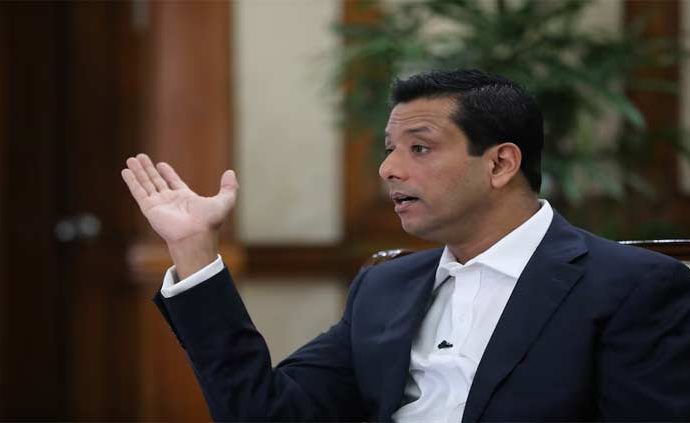NEW DELHI (Reuters)- Allegations of wrongdoing involving the family in the 2015 awarding of a $12.65 billion nuclear power deal were characterized as “completely bogus” and a “smear campaign” by the son and adviser of ousted Bangladesh Prime Minister Sheikh Hasina on Tuesday.
On Monday, the Anti Corruption Commission of Bangladesh said that it has opened an investigation into claims of money laundering, embezzlement, and corruption in the Rooppur Nuclear Power Plant project, which is supported by Rosatom, the state-owned company in Russia.
2015 saw the signing of an agreement for two 1,200 megawatt power projects.
According to the panel, Hasina, her son Sajeeb Wazed, and her niece and British Treasury Minister Tulip Siddiq engaged in financial abuses through offshore accounts totaling almost $5 billion.
Reuters reached out to Siddiq and Rosatom for comment, but they did not reply.
According to a spokesman for British Prime Minister Keir Starmer, Siddiq has expressed confidence in her and denied any participation in the allegations. According to the spokeswoman, Siddiq will remain in her position.
Rosatam was described by Bangladeshi media in August as stating that company was “committed to transparent working practices, strict anti-corruption policies, and openness in all procurement processes” in response to a previous media accusation of corruption.
Speaking for the family, Wazed said that they were the focus of a political witch hunt in Bangladesh.
“These accusations are a smear effort and are wholly false. “Neither my family nor I have ever participated in or received funding from any government projects,” he told Reuters from his home in Washington.
“Billions cannot be embezzled from a $10 billion project. Additionally, we don’t have any accounts abroad. While my aunt and cousins have lived in the UK for a comparable length of time, I have spent thirty years in the United States. None of us have ever seen that amount of money, even though we clearly have accounts here.”
Hasina has not been seen in public since escaping to New Delhi in early August after a violent rebellion against her in Bangladesh, but Reuters was unable to get in touch with her. The nation has been governed by an interim administration ever since.
On Monday, the Dhaka administration announced that it had requested that India return Hasina. While confirming the request, New Delhi chose not to comment more.
According to Wazeb, New Delhi had not requested that Hasina seek shelter abroad, and the family had not decided whether to send her back to Bangladesh.


